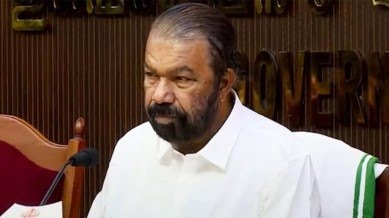Kerala’s Education Minister V Sivankutty has strongly condemned the Lakshadweep administration’s decision to remove Arabic and Mahal languages from the school curriculum, terming the move “deeply disturbing” and a violation of linguistic rights, reported the Hindustan Times.
In a statement released Wednesday, Sivankutty said the decision was made under the guise of implementing the National Curriculum Framework (NCF) 2023, part of the Modi government’s National Education Policy (NEP), which he accused of aiming to destroy India’s rich cultural and linguistic diversity. The controversial order was issued on May 14 by the Education Department of Lakshadweep.
Mahal, also known as the Maliku dialect, is a variant of Dhivehi—the official language of the Maldives—and bears influences from Malayalam. It is widely spoken in the Lakshadweep archipelago along with Arabic, which holds religious and cultural significance for the island’s predominantly Muslim population.
“Kerala expresses its solidarity with the people of Lakshadweep,” Sivankutty said. “All democratic forces, academicians, and educational organisations must raise their voice against this linguistic injustice and demand the withdrawal of this decision. The Union Government’s attempt to unilaterally impose educational reforms that erase regional languages must be resisted.”
He further stated that the decision contradicts the Union Government’s stated policy of promoting mother tongues and regional languages in education. Denying students in Lakshadweep the right to study their own languages, he said, is a blatant violation of the constitutional rights of linguistic minorities.
The Kerala government has consistently voiced concerns over the National Education Policy 2020 and related schemes like the Pradhan Mantri Schools for Rising India (PM SHRI), highlighting their potential to centralise and homogenise education in a diverse country.
“Our opposition to NEP stemmed from exactly this fear—that local languages and cultures would be systematically marginalised,” he said.
The decision has triggered outrage among educationists and rights activists, who see it as part of a broader cultural imposition under the current regime.




